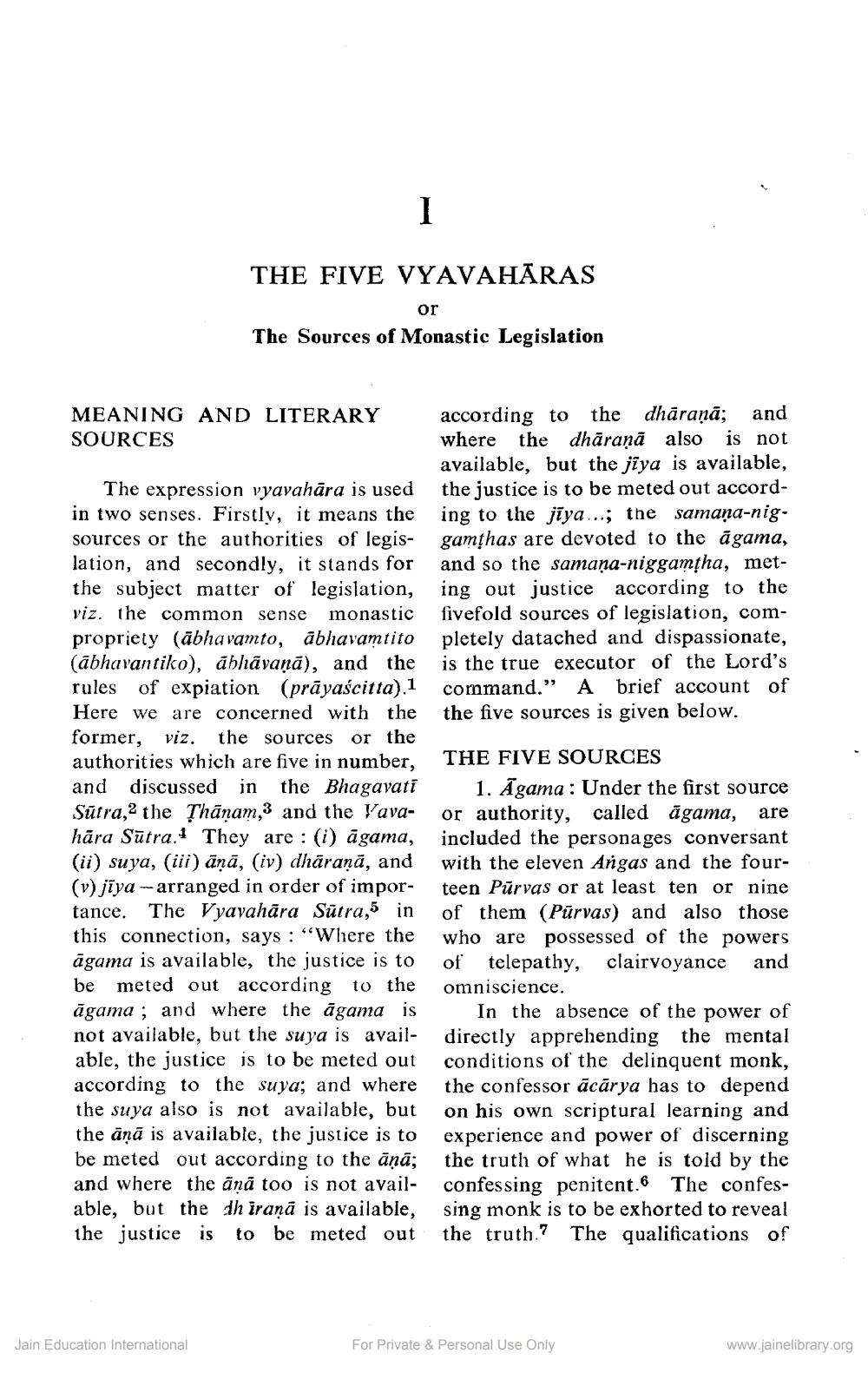________________
I
THE FIVE VYAVAHARAS
MEANING AND LITERARY SOURCES
Jain Education International
or
The Sources of Monastic Legislation
The expression vyavahāra is used in two senses. Firstly, it means the sources or the authorities of legislation, and secondly, it stands for the subject matter of legislation, viz. the common sense monastic propriety (abhavamto, abhavamtito (abhavantiko), ābhāvaṇā), and the rules of expiation (prāyaścitta).1 Here we are concerned with the former, viz. the sources or the authorities which are five in number, and discussed in the Bhagavati Sutra,2 the Thanam,3 and the Yavahāra Sutra. They are: (i) āgama, (ii) suya, (iii) āṇā, (iv) dhāraṇā, and (v) jiya-arranged in order of importance. The Vyavahara Sutra,5 in this connection, says: "Where the agama is available, the justice is to be meted out according to the agama; and where the agama is not available, but the suya is available, the justice is to be meted out according to the suya; and where the suya also is not available, but the āṇā is available, the justice is to be meted out according to the āṇā; and where the ana too is not available, but the thirana is available, the justice is to be meted out
according to the dhāraṇā; and where the dhāraṇā also is not available, but the jiya is available, the justice is to be meted out according to the jiya...; the samaṇa-niggamthas are devoted to the agama, and so the samaṇa-niggamtha, meting out justice according to the fivefold sources of legislation, completely datached and dispassionate, is the true executor of the Lord's command." A brief account of the five sources is given below.
THE FIVE SOURCES
1. Agama: Under the first source or authority, called agama, are included the personages conversant with the eleven Angas and the fourteen Purvas or at least ten or nine of them (Purvas) and also those who are possessed of the powers of telepathy, clairvoyance and omniscience.
In the absence of the power of directly apprehending the mental conditions of the delinquent monk, the confessor ācārya has to depend on his own scriptural learning and experience and power of discerning the truth of what he is told by the confessing penitent. The confessing monk is to be exhorted to reveal the truth. The qualifications of
For Private & Personal Use Only
www.jainelibrary.org




